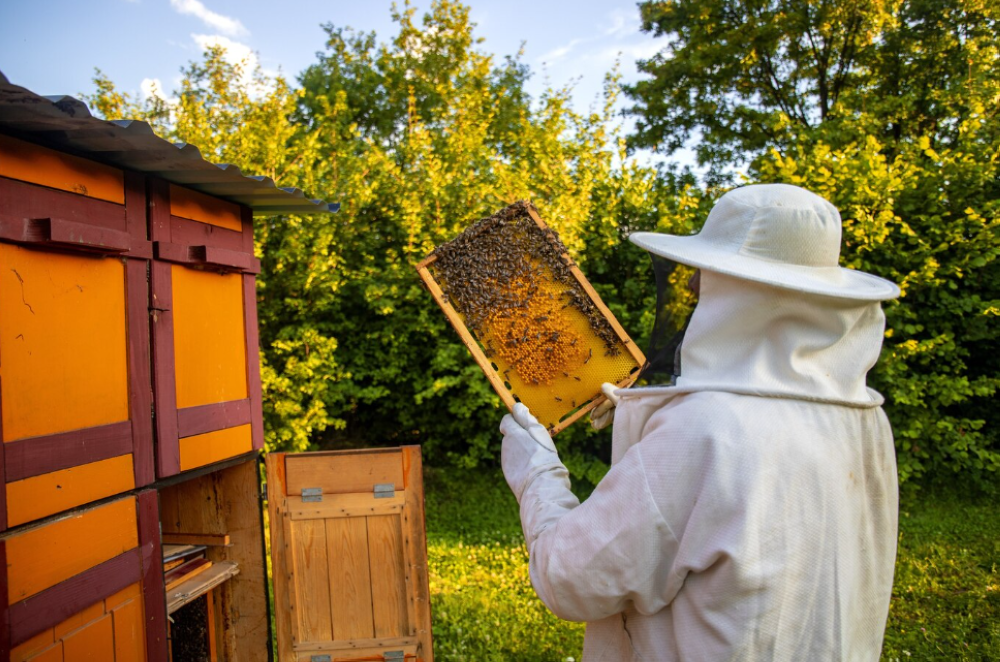The Ministry of Environment, Water, and Agriculture has introduced an updated regulatory guide through the “Istitala” platform, outlining the regulation and licensing of three vital activities related to beekeeping and honey production. These include licensing commercial apiaries, individual apiaries, and a “Beekeeper – Professional Practice” permit.
The aim is to regulate this vital sector, enhance its production efficiency and marketing quality, while considering environmental health, site safety, and practitioner training.
Licensing for Beekeeping and Honey Production Activities
The guide specifies that beekeeping and honey production activities involve establishing and operating apiaries. Investors must first obtain a construction license through the ministry’s official electronic channels by submitting their national ID or commercial registration, property deed or lease agreement for the site, and a precise survey with four decimal coordinates.
Additional requirements include an agricultural record, an approved technical and economic feasibility study, and approvals from relevant authorities based on the activity’s location.
License applicants must meet site-specific conditions, such as being outside urban planning zones, away from pollution sources like fertilizers and pesticides, and maintaining a recommended safe distance of up to 3 km from the nearest apiary or industrial facility.
For the operational license phase, applicants must provide the construction license, a technical report from the ministry or its delegate detailing implementation progress or aerial site images, and full compliance with agricultural regulations and the beekeeping activity guide.
Commercial Individual Apiary License: Modern Hives
The ministry has dedicated a separate regulatory section for licensing commercial individual apiaries, whether fixed or mobile, including those using modern or traditional “local” hives.
The process begins with submitting a construction license application along with the national ID, property deed or lease agreement, a precise site survey with coordinates, an agricultural record, and a technical feasibility study or a ministry-approved form.
Applicants must register apiary data, ensure the site is outside residential areas and away from pollution sources or odors that repel bees, and maintain a safe distance from existing apiaries.
For fixed apiaries, a legal or regulatory document for the site is required, along with proof of a suitable environment for beekeeping and availability of forage plants.
For the operational license phase, the same requirements apply, along with a technical report from the ministry or its delegate confirming implementation progress and full compliance with agricultural regulations, apiary bylaws, and the beekeepers’ guide.
Beekeeper Permit: Mandatory Training Courses of at Least 25 Hours
The eighteenth section of the guide outlines the requirements for obtaining a beekeeper permit to practice the profession, which is granted exclusively to Saudi citizens.
The






